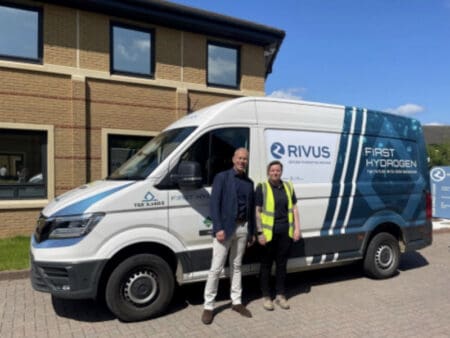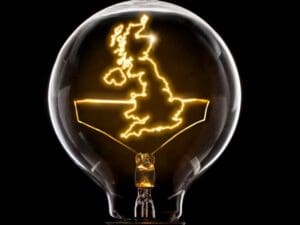
Bitcoin mining energy consumption revised downwards, Samsung to add generative AI to home appliances and a hydrogen-powered van doubling the range of an EV are on the week’s technology radar.
Bitcoin mining energy consumption revised down
The Cambridge Bitcoin Electricity Consumption Index, one of the key resources in this area, has had its first major revision since its launch in 2019, leading to a reduction, albeit relatively small, in consumption.
For example, for 2021 where the largest discrepancy occurs, the earlier estimate of 104TWh is revised downward by 15TWh to 89TWh.
For 2023 the estimated anticipated consumption based on the year-to-mid-August is 70.4TWh, rather than 75.7TWh of the earlier model.
Have you read?
Four ways AI could bring us closer to net zero
Site visit: France’s first EV battery gigafactory
The Cambridge team attribute the change to the modelling of the Bitcoin mining hardware and technology, taking into account both the increased efficiency and power of the evolving application-specific integrated circuits (ASICs).
With the progressive reduction in chip size, there has been a corresponding reduction in power needed to transmit data.
However, this now appears to have slowed and steadied as the advances have approached the physical limits of semiconductor technology, with smaller chip manufacture becoming more challenging and expensive.
The Cambridge team expresses confidence in their estimates and regards each update as a progressive step toward enhancing their reliability, but the team acknowledges that Bitcoin’s actual electricity consumption remains elusive and can only be approximated.
Moreover, while electricity consumption is a crucial element in determining Bitcoin’s environmental footprint, it is one and the energy sources used in mining are just as important. Further research is planned to focus on developing a more nuanced perspective of Bitcoin’s electricity mix and more closely examining the climate risks and opportunities associated with cryptocurrency mining.
Samsung to add generative AI to home appliances
Samsung has been reported as planning to add a generative AI feature to its home appliances in the next year.
Yoo Mi-young, head of the software development team of Samsung’s digital appliances division, was reported speaking at the IFA consumer electronics show in Berlin: “Generative AI technologies will be applied to voice, vision and display” to enable the household electronic products to have a better understanding of what consumers do and want and to be able to respond accordingly.
It will enable the gadgets to communicate with users in a more conversational manner, and to better respond to their questions based on past exchanges and in context.
They will also be able to provide recipes and dietary suggestions based on for example the food ingredients stored in the refrigerator.
Yoo Mi-young was also quoted as reporting the development of an energy-efficient chip to process the increasing amounts of data of smart appliances, with features such as generative AI.
Hydrogen-powered van doubles the range of EV counterparts
Canadian hydrogen company First Hydrogen has reported that its hydrogen fuel cell powered light van supplied to GB fleet management provider Rivus has achieved an “unbeatable range”, easily more than doubling the upwards range to 240km of other modern light commercial electric vehicles.
The vehicle was trialed with Rivus for just over 4 weeks, and covered over 1,100km in that time. Tests were completed on diverse routes, providing data on how the vehicle operates under different conditions including urban city centre driving and extra urban routes covering both low-speed city centre roads and motorways.
The tests also covered the van both empty and loaded to 90% of its maximum weight capacity, reflecting the way vans will be used in the real world.
The vehicle was found to be not heavily affected by the speed or the payload, and performed well under the different load cycles compared to the electric counterparts, which can experience reductions in range by approximately 10%.
“The main benefit of the vehicle is the refuelling times are quicker than battery electric vehicles charge times. And of course, unlike internal combustion engines, hydrogen vehicles produce zero emissions,” Gemma Horne, Warranty Controller at Rivus, commented.








